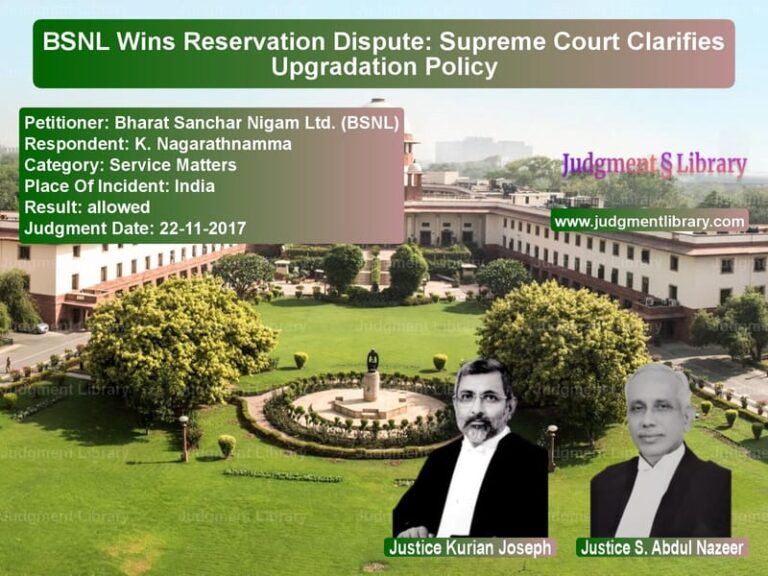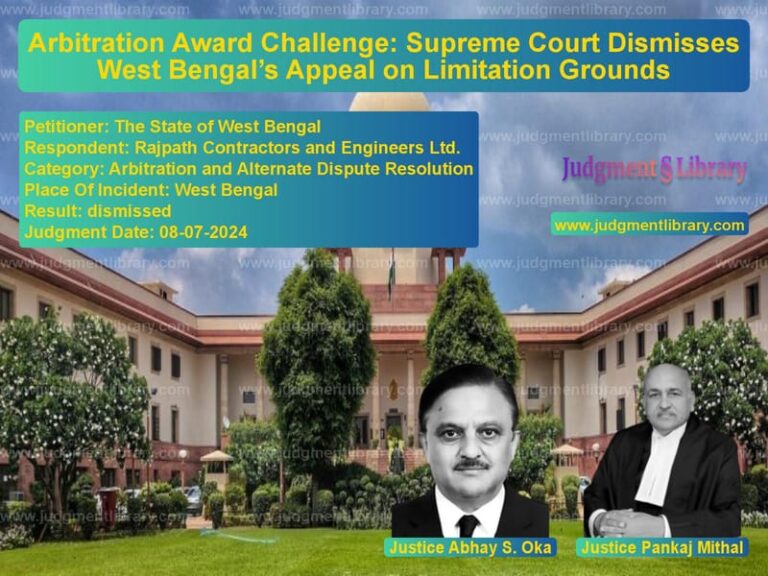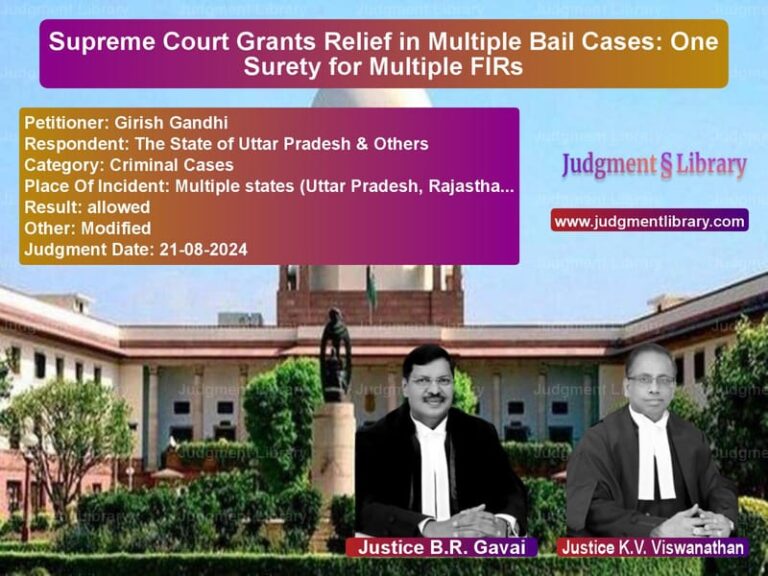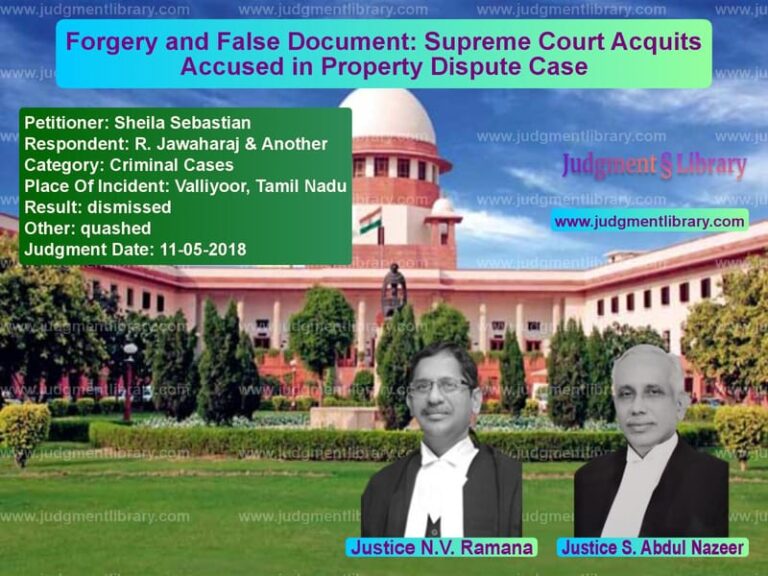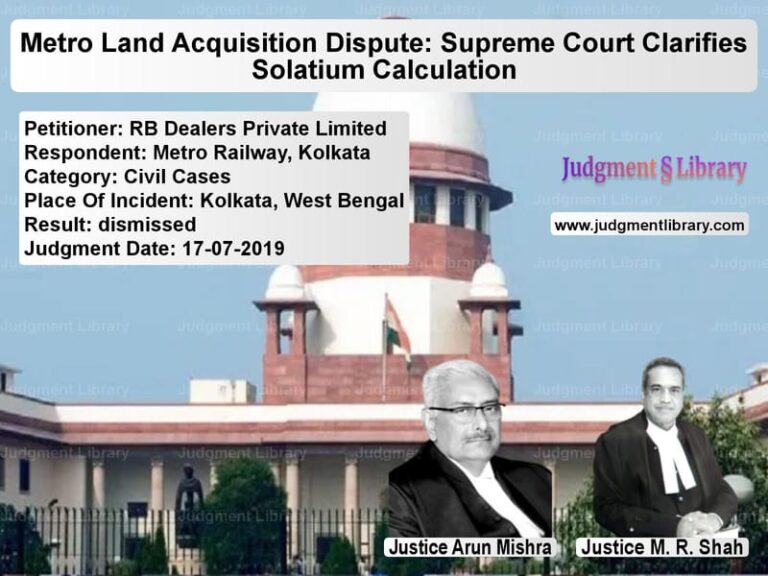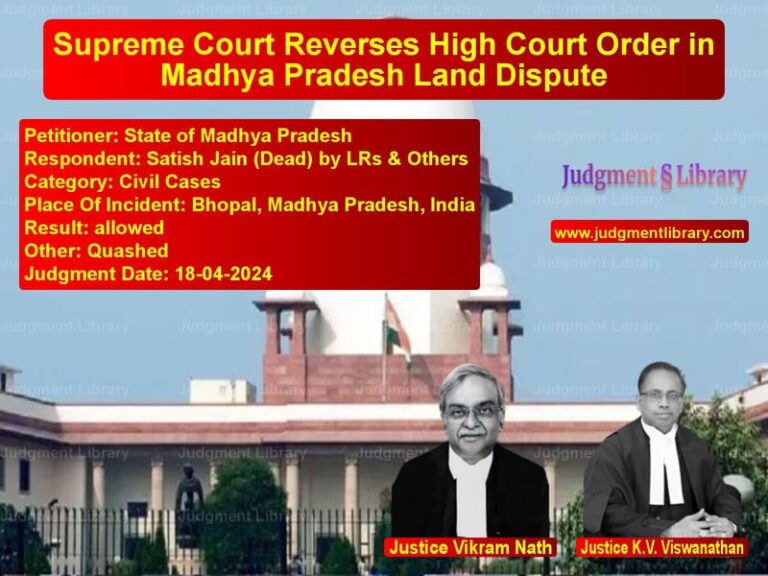Supreme Court Dismisses Specific Performance Suit Over Unproven Land Ownership
The case of Dharmabiri Rana vs. Pramod Kumar Sharma (D) Through LRs & Another was an appeal concerning the enforcement of a specific performance suit regarding the sale of property. The Supreme Court ruled that the agreement for sale was unenforceable as the defendants were not the lawful owners of the disputed land. The judgment reaffirmed that a contract for sale can only be enforced when the seller has a legal right to transfer the property.
Background of the Case
The plaintiff, Dharmabiri Rana, filed a suit for specific performance of a contract dated 04.01.1987. The plaintiff claimed that defendant No. 2, acting as the power of attorney holder for defendant No. 1 (his brother), had entered into an agreement to sell a 150-square-yard plot for Rs. 60,000. The plaintiff paid Rs. 5,000 as earnest money and alleged that possession of the plot was also handed over.
However, the terms of the agreement were modified on 07.01.1987, increasing the sale consideration to Rs. 65,000. The plaintiff approached defendant No. 2 on 25.01.1987 for execution of the sale deed, but the latter refused, citing that his brother had gone abroad. This led the plaintiff to file a suit for specific performance and a permanent injunction against the defendants.
Arguments by the Petitioner (Plaintiff)
- The plaintiff argued that the agreement was legally binding and that defendant No. 2 acted on behalf of defendant No. 1 with authority.
- He claimed to have performed his obligations by making an advance payment and remaining ready to fulfill the contract.
- He further contended that defendant No. 1 did not explicitly deny executing a power of attorney in favor of defendant No. 2.
Arguments by the Respondent (Defendants)
- The defendants denied that they had any ownership of the property and claimed that the agreements dated 04.01.1987 and 07.01.1987 were fabricated.
- Defendant No. 1 stated that he never authorized defendant No. 2 to sell the property.
- They further argued that the suit lacked merit as there was no proof that the plaintiff had entered into a legitimate agreement with a legal owner.
Trial Court Decision
The trial court framed four issues:
- Whether the plaintiff had the locus standi to file the suit.
- Whether the suit was properly valued for court fees and jurisdiction.
- Whether the plaintiff was entitled to specific performance of the agreement.
- Relief to be granted.
On 30.11.1999, the trial court ruled in favor of the plaintiff, granting a decree for specific performance.
Appeals and Higher Court Rulings
The defendants filed an appeal before the Additional District Judge, which was allowed on 02.04.2005, reversing the trial court’s decision and dismissing the plaintiff’s suit.
The plaintiff then approached the Delhi High Court, which dismissed the second appeal on 19.07.2005, holding that no substantial question of law arose.
Supreme Court’s Observations
- The Supreme Court observed that specific performance can only be granted when the seller has a legal right to transfer the property.
- The Court held that both defendants had denied ownership of the suit property.
- The appellate courts had correctly ruled that no enforceable contract existed between the parties.
- The agreement was declared illegal and unenforceable.
Supreme Court’s Judgment
- The appeal was dismissed, upholding the High Court’s ruling.
- The Court ruled that specific performance could not be granted due to a lack of proof regarding the defendants’ ownership.
- The contract was deemed unenforceable as neither defendant was legally capable of selling the property.
- Pending applications, if any, were also disposed of.
Impact of the Judgment
- This ruling clarifies that only a legitimate owner can enter into a binding sale agreement.
- It emphasizes that courts will not enforce contracts if the seller lacks the right to transfer ownership.
- The judgment discourages fraudulent land transactions and reinforces the necessity of verifying property ownership before entering into agreements.
This decision serves as an essential precedent in property law, highlighting the requirement of clear title ownership before executing sale agreements.
Don’t miss out on the full details! Download the complete judgment in PDF format below and gain valuable insights instantly!
Download Judgment: Dharmabiri Rana vs Pramod Kumar Sharma Supreme Court of India Judgment Dated 05-10-2017.pdf
Direct Downlaod Judgment: Direct downlaod this Judgment
See all petitions in Specific Performance
See all petitions in Contract Disputes
See all petitions in Property Disputes
See all petitions in Judgment by A.K. Sikri
See all petitions in Judgment by Ashok Bhushan
See all petitions in dismissed
See all petitions in supreme court of India judgments October 2017
See all petitions in 2017 judgments
See all posts in Civil Cases Category
See all allowed petitions in Civil Cases Category
See all Dismissed petitions in Civil Cases Category
See all partially allowed petitions in Civil Cases Category


